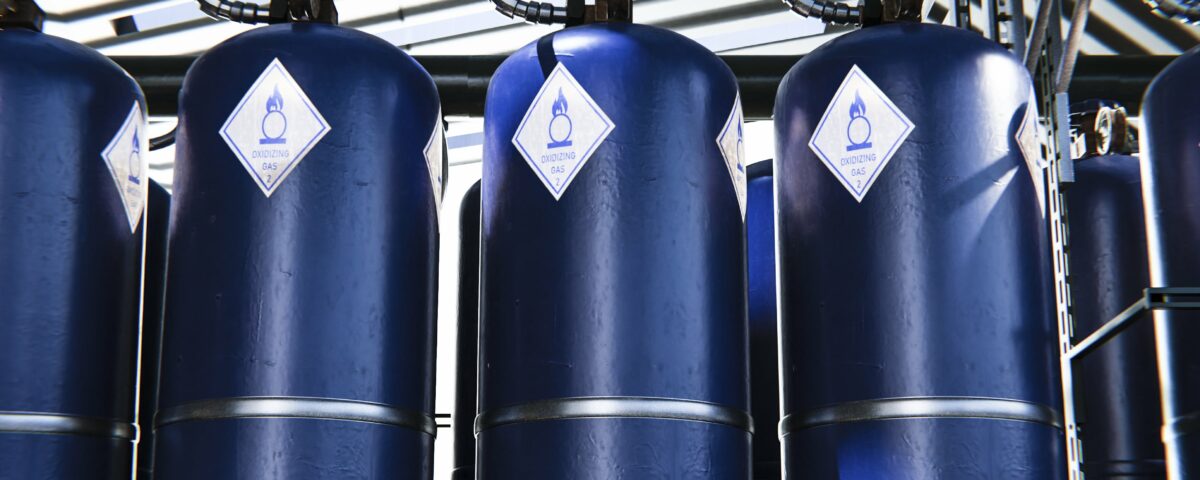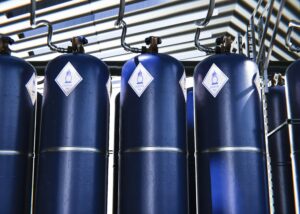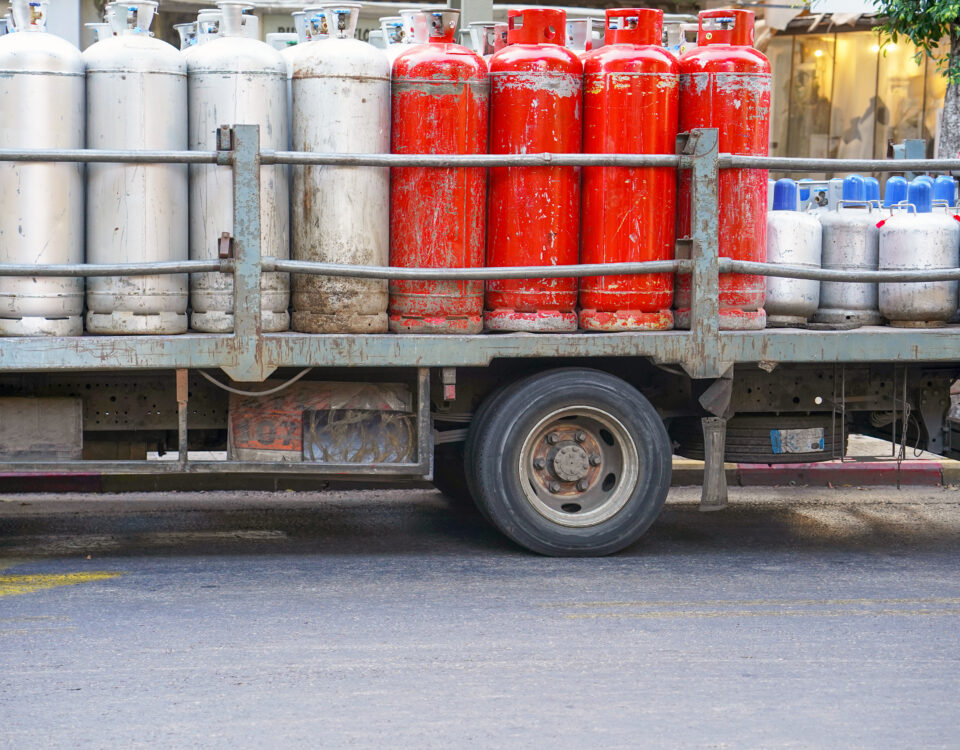- For secure high-pressure
- +36 62 999 051
- info@pwent.eu
Gas Cylinders: Understanding Their Role in Industrial Applications
Last Updated on 2 years ago by admin
Gas cylinders, functioning as robust containers under high pressures, store an array of gases from flammable acetylene to inert helium. Their importance extends beyond containment, influencing diverse aspects of daily life. From pivotal roles in the food industry to driving manufacturing processes and contributing to life-saving endeavors in the medical field, gas bottles play a vital role in shaping various industries. This article aims to unravel the versatile roles of gas cylinders, delving into their applications across different sectors and highlighting their essential contributions to modern life.
Role of Gas Cylinders in Industrial Applications
Gas cylinders play integral roles, from powering critical machinery in manufacturing to safeguarding precision in medical procedures and even contributing to the shelf life of packaged food in the food and beverage sector.
1. Medical Industry
Gas bottles, bundles, and cryogenic vessels are critical in healthcare, where precision is non-negotiable. As repositories for life-sustaining gases such as oxygen, nitrous oxide, and medical air, these vessels play an unassuming yet vital role.
Oxygen cylinders, omnipresent in medical facilities, are indispensable for patients with respiratory disorders. The steady growth of the global medical gas cylinders market attests to the pragmatic significance of these vessels in advancing medical care.
2. Food and Beverage Industry
Gas cylinders contribute significantly to maintaining product quality and freshness in the food and beverage industry.
Beyond their role in carbonation processes, these vessels are key players in Modified Atmosphere Packaging (MAP), extending the shelf life of packaged food.
The use of food-grade industrial gases, like carbon dioxide, nitrogen, and oxygen, aligns with evolving consumer demands for superior quality, variety, and extended product shelf life, making gas bottles vital contributors to the industry’s operational resilience.
3. SCBA and Life Support Systems
Gas cylinders play a crucial role in the Self-Contained Breathing Apparatus (SCBA) and life support systems, ensuring the safety of individuals in environments with hazardous air. SCBAs, worn in firefighting, industrial, and emergency response settings, are self-contained devices providing an independent supply of breathable gas.
The main components of an open circuit SCBA include a high-pressure gas storage cylinder, a pressure regulator, and a respiratory interface. The SCBA transfers compressed oxygen to the wearer through components like the cylinder and demand valves. When exhaled, the canister absorbs the air’s carbon dioxide, and oxygen is replenished via a breathing bag, facilitating prolonged use.
Would you like to inquire about our products or request a quote? Don’t hesitate to contact us!
4. Chemical Industry
In the chemical industry, gas cylinders are instrumental for storing and transporting essential gases crucial to chemical reactions. Acetylene cylinders play a key role in acetylation processes, ensuring acetylene’s controlled and precise introduction into chemical synthesis.
Synthesis processes rely on industrial gases as input materials, contributing to the efficiency of operations and facilities. These gases are crucial in optimizing process economics, elevating product quality, ensuring plant safety, and promoting environmental conservation.
Common gases like argon, helium, hydrogen, oxygen, and nitrogen are compressed into cylinders, meeting industry standards of 200-300 bars.
This meticulous compression ensures the availability of gases at specified pressures, a critical factor in maintaining the precision and success of diverse chemical processes. Gas cylinders, beyond containment, serve as guardians of these crucial elements, contributing to the industry’s efficiency and reliability.
5. Emerging Industries and Technologies
As industries evolve, so do the applications of gas bottles. In the burgeoning field of renewable energy, hydrogen gas bottles play a central role in storing hydrogen for fuel cells.
With its potential to increase EBIT margins, the industrial gas sector gains a competitive edge, aligning with historical robustness. In this context, gas cylinders serve as pragmatic bridges between traditional industrial processes and the evolving landscape of cutting-edge technologies.
6. Manufacturing Industry
Within the manufacturing sector, the pragmatic significance of bottles extends beyond conventional fuel storage, playing a pivotal role in powering critical machinery and tools. Various industrial gases are used in the sector, including atmospheric gases and natural or inert gases, such as nitrogen, oxygen, hydrogen, carbon dioxide, and argon.
Specifically, in welding processes, gas cylinders serve as the source of acetylene or, for higher-temperature combustion, oxygen (O2).
These cylinders provide the essential gases and create a controlled atmosphere, ensuring precision by preventing undesirable reactions with ambient air. The reliability of bottles goes beyond mere convenience; it is a fundamental factor contributing to the operational efficiency of manufacturing processes., where precision and control are paramount.
7. Sports
In the world of sports, gas cylinders play a crucial role in various activities, each tailored to specific requirements. A mixture containing helium and oxygen, known as heliox, becomes essential in deep-phase diving. This blend minimizes the risk of nitrogen narcosis, particularly under higher pressure, ensuring the safety of divers during their underwater exploration.
In sports like paintball, the choice between high-pressure air (HPA) and carbon dioxide (CO2) for paintball tanks is determined by factors such as the playing environment and the type of marker used. The selection of the appropriate gas source is pivotal in optimizing the performance and efficiency of equipment, enhancing the overall sporting experience.
Innovations and Future Trends
The landscape of gas cylinders is experiencing a shift driven by pragmatic innovations to enhance efficiency and safety. The automation featuring gantry robots and optical inspection capabilities in the filling process ensures meticulous checks for cylinder damage before reuse.
1. Pragmatic Innovations for Efficiency and Safety
The gas cylinder industry is undergoing a transformation marked by practical innovations. These innovations are designed to enhance operations’ efficiency, and safety, as well as to introduce green practices.
One notable development is the integration of automation technologies, such as gantry robots and optical inspection capabilities, into the filling process. This automation ensures a meticulous examination of these bottles for any damage before reusing them, contributing to improved safety standards.
2. Automation with Gantry Robots and Optical Inspection
Automation is a crucial driver of change in the industry. Gantry robots, which are robotic systems mounted on an overhead structure, play a vital role in automating various processes in gas cylinder handling.
Optical inspection capabilities are utilized to conduct thorough checks on gas cylinders, ensuring that they meet safety standards and are accessible from any defects or damages. This level of automation enhances the precision and reliability of the bottle inspection process.
3. Role of Automated Guided Vehicles (AGVs)
Automated Guided Vehicles (AGVs) equipped with advanced sensors and cameras are emerging as pioneers in the handling and transporting of gas cylinders.
These AGVs contribute to streamlined operations and elevate safety standards by leveraging cutting-edge technology. Using sensors and cameras enables them to navigate and transport gas cylinders accurately and efficiently.
4. Global Surge in Gas Cylinder Demand
The global demand for gas bottles is experiencing a significant increase. This surge is attributed to the rising adoption of natural gas vehicles, aligning with the growing emphasis on sustainable practices in the transportation sector.
Gas bottles are playing a pivotal role beyond their traditional applications, becoming essential in storing and transporting alternative fuels like hydrogen. This shift reflects a pragmatic response to the industry’s trajectory toward a more sustainable future.
For more information on our industrial gas cylinders, please contact us!
Why Choose Pwent?
Pwent specializes in gas cylinders and associated machinery, encompassing bundles and an extensive range of equipment within this domain. The company’s product repertoire includes gas cylinder and fire extinguisher refurbishment machinery, such as gas cylinder testing, valve mounting machines, and powder filling and recovery systems.
Pwent operates across multiple business areas, from producing gas cylinder bundles and pallets to testing and refurbishing machinery for gas cylinders and fire extinguishers. Our expertise extends to the meticulous handling and testing of various extinguishing agents, including powder extinguishers, CO2 extinguishers, and chemical agents.
Summary
In conclusion, gas cylinders, though often overlooked, embody practical indispensability in the seamless functioning of diverse industrial sectors. Their roles in manufacturing, healthcare, food and beverage, chemicals, and emerging technologies are grounded in pragmatic utility.
Pwent provides immediate support for producing and servicing companies with safe, aesthetic gas bottles and fire protection systems. Modularity is at the core of Pwent’s gas cylinder bundle philosophy, providing various options with swift production times.




